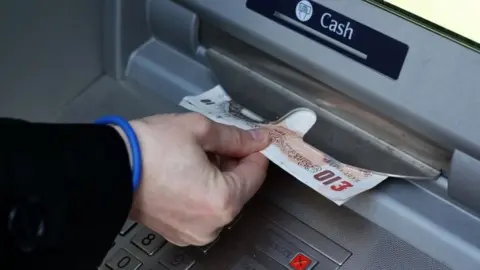Number of young people acting as 'money mules' doubles
 PA
PAThe number of young people caught acting as "money mules" has doubled in the past four years, according to the UK's fraud prevention service, Cifas.
A mule allows their bank account to be used by others to transfer money in and out of it, and in return, keep some of the money for themselves.
The money to be laundered is likely to have come from drug smuggling, people trafficking and terrorism, experts say.
If caught, money mules have their bank accounts closed and could face jail.
Between January and September of this year, there were 8,652 cases involving 18-24-year-olds, Cifas said.
It added that young people, including students, are often targeted because they are vulnerable and short of money.
Adverts can appear online through a social media post, offering cash rewards for little work.
The job advertised might be a "financial manager" or "UK representative", and a UK bank account will be a requirement.

How to avoid becoming a money mule
 PA
PA- Do not give bank details to anyone you do not know or trust
- Be wary of job offers where all interactions and transactions are done online
- Be cautious of unsolicited offers of easy money
- Research any company that makes you a job offer
- Be wary of job offers written in poor English with grammatical errors or spelling mistakes
Source: Don't Be Fooled

The rise in cases has prompted a new campaign, Don't Be Fooled.
It features a film called Sponsor a Child Trafficker, warning would-be mules of the key role they could play "in the life of a criminal and the innocent people they enslave".
Money laundering is illegal and can lead to 14 years imprisonment.
Those caught could struggle to obtain student loans, mobile phone contracts or other financial products if their bank account is closed due to money laundering.
'Too good to be true'
Katy Worobec, from UK Finance, said money muling is money laundering.
"We're urging people not to give their bank account details to anyone unless they know and trust them," she said.
"If an offer of easy money sounds too good to be true, it probably is."
Simon Dukes, chief executive of Cifas, said he hoped educating young people about how serious this type of fraud is, will make them think twice before getting involved.
If you think you may have acted as a money mule, visit the Cifas website on what to do next and report any incidents of fraud to Action Fraud.
